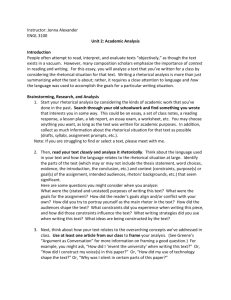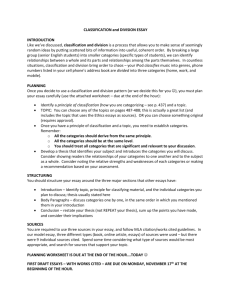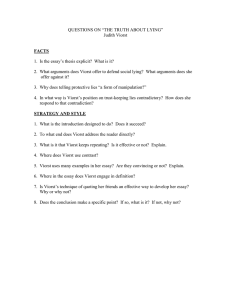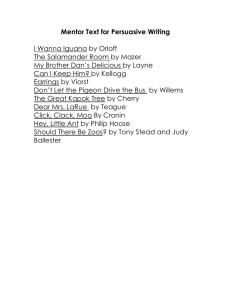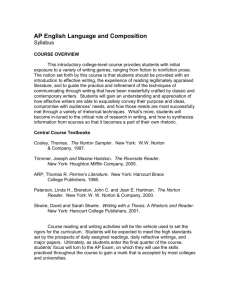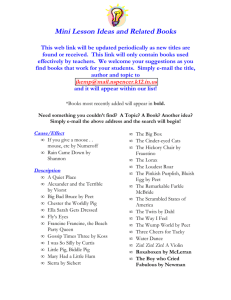The Truth About Lying 103KB Oct 15 2013 09:24:44 AM
advertisement
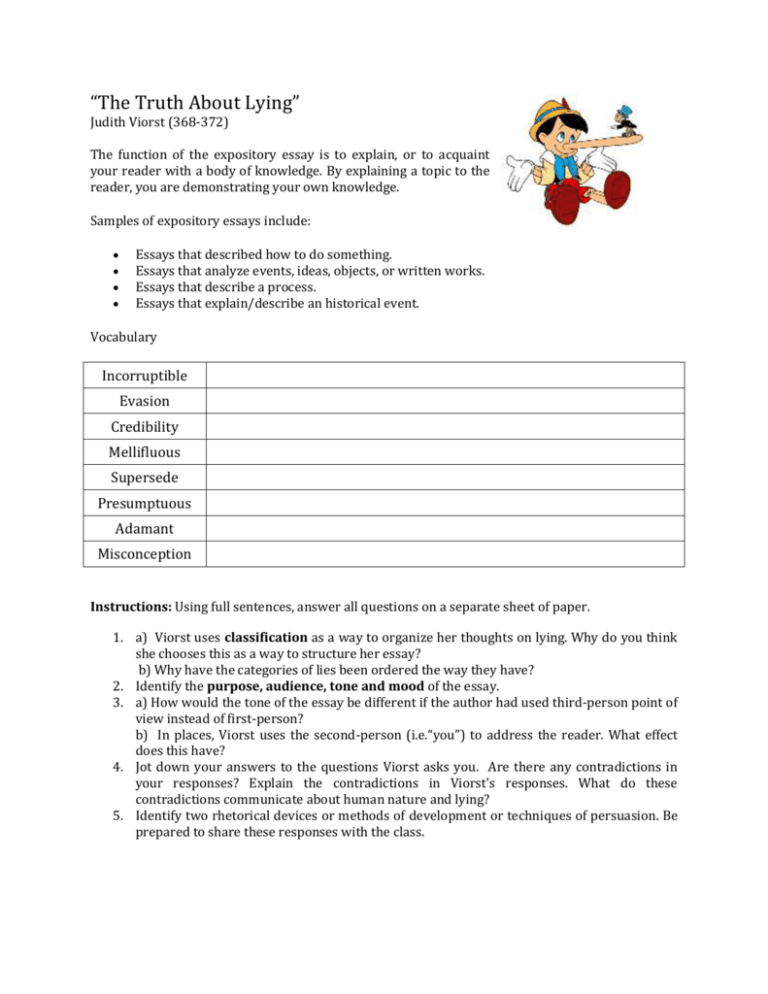
“The Truth About Lying” Judith Viorst (368-372) The function of the expository essay is to explain, or to acquaint your reader with a body of knowledge. By explaining a topic to the reader, you are demonstrating your own knowledge. Samples of expository essays include: Essays that described how to do something. Essays that analyze events, ideas, objects, or written works. Essays that describe a process. Essays that explain/describe an historical event. Vocabulary Incorruptible Evasion Credibility Mellifluous Supersede Presumptuous Adamant Misconception Instructions: Using full sentences, answer all questions on a separate sheet of paper. 1. a) Viorst uses classification as a way to organize her thoughts on lying. Why do you think she chooses this as a way to structure her essay? b) Why have the categories of lies been ordered the way they have? 2. Identify the purpose, audience, tone and mood of the essay. 3. a) How would the tone of the essay be different if the author had used third-person point of view instead of first-person? b) In places, Viorst uses the second-person (i.e.“you”) to address the reader. What effect does this have? 4. Jot down your answers to the questions Viorst asks you. Are there any contradictions in your responses? Explain the contradictions in Viorst’s responses. What do these contradictions communicate about human nature and lying? 5. Identify two rhetorical devices or methods of development or techniques of persuasion. Be prepared to share these responses with the class. Analyzing Rhetorical Devices, Techniques and Methods of Development When examining a writer’s use of rhetorical devices, techniques and methods of development in an essay, it is important to be aware of their relationship to the thesis. Whether you begin with a working thesis or examine the devices to arrive at a thesis based on your findings, the rhetorical device/technique/method of development is intrinsically linked to a purpose that is tied to the thesis of the essay. Sometimes they are used to enhance or highlight an idea. Other times, they are used to help further illustrate, clarify, or elucidate some complex concept. Rhetorical Device Direct Quotation and explanation of Usage (connect to Connection to the thesis and Intended Effect on Reader the definition of device) Colloquial Language By using terms such as “yuk” and “mumbo-jumbo” Suzuki uses terms from informal conversational speech. The use of colloquial language establishes a conversational, informal tone that Suzuki uses to draw readers into a more intimate, relaxed mood which makes him seem more down-to-earth and “in touch” with his audience. It also creates a distinct voice to his writing which makes it memorable and more engaging.

